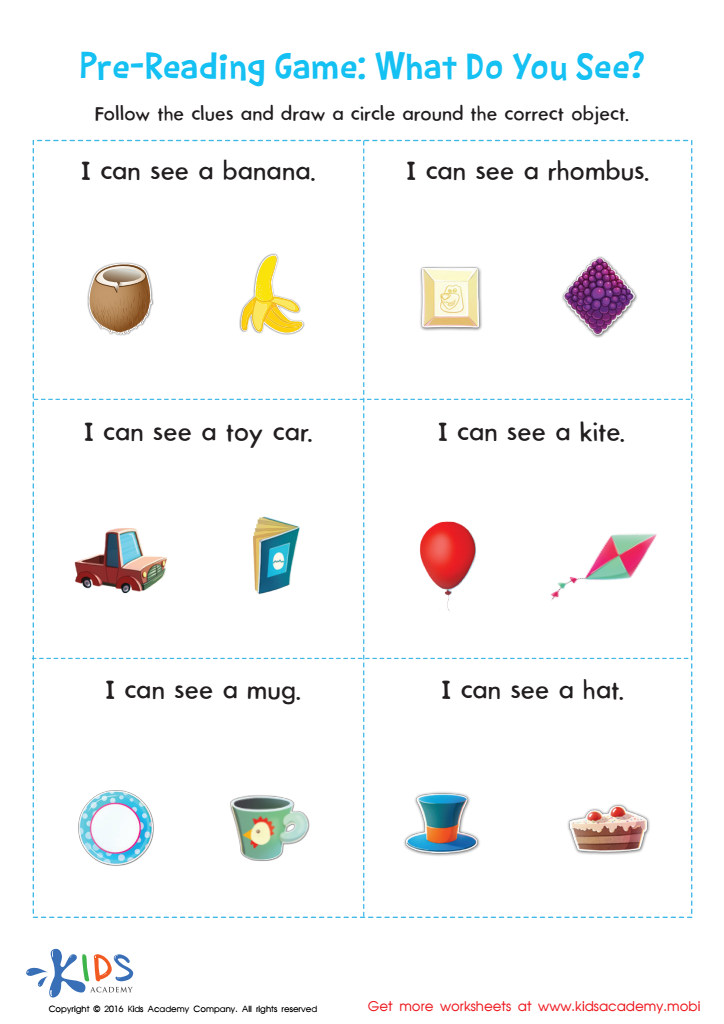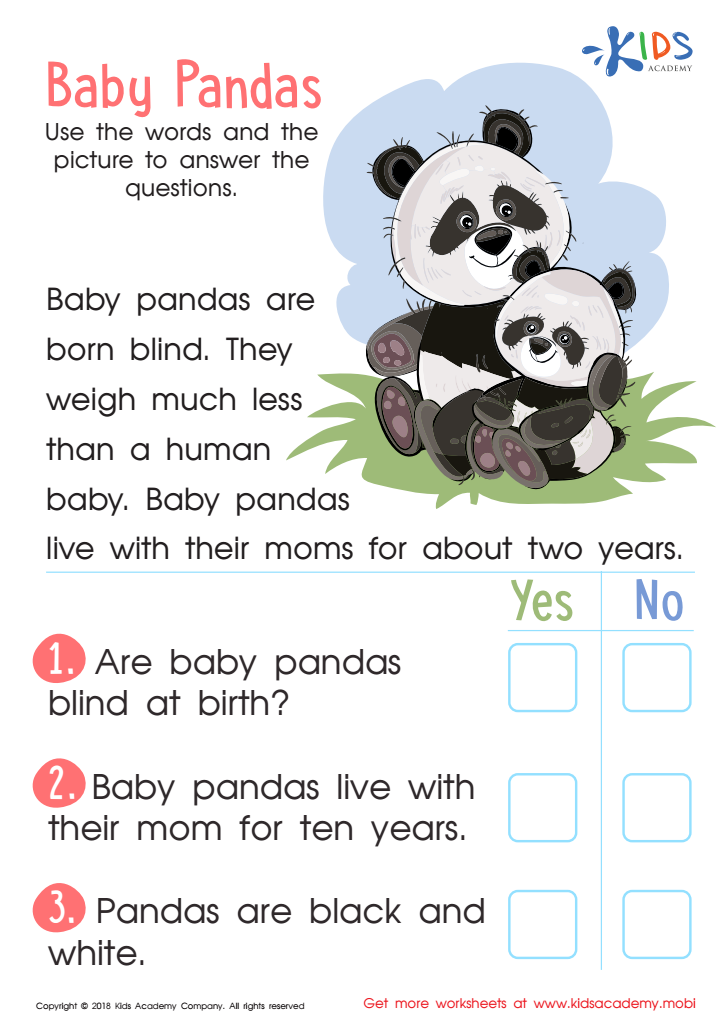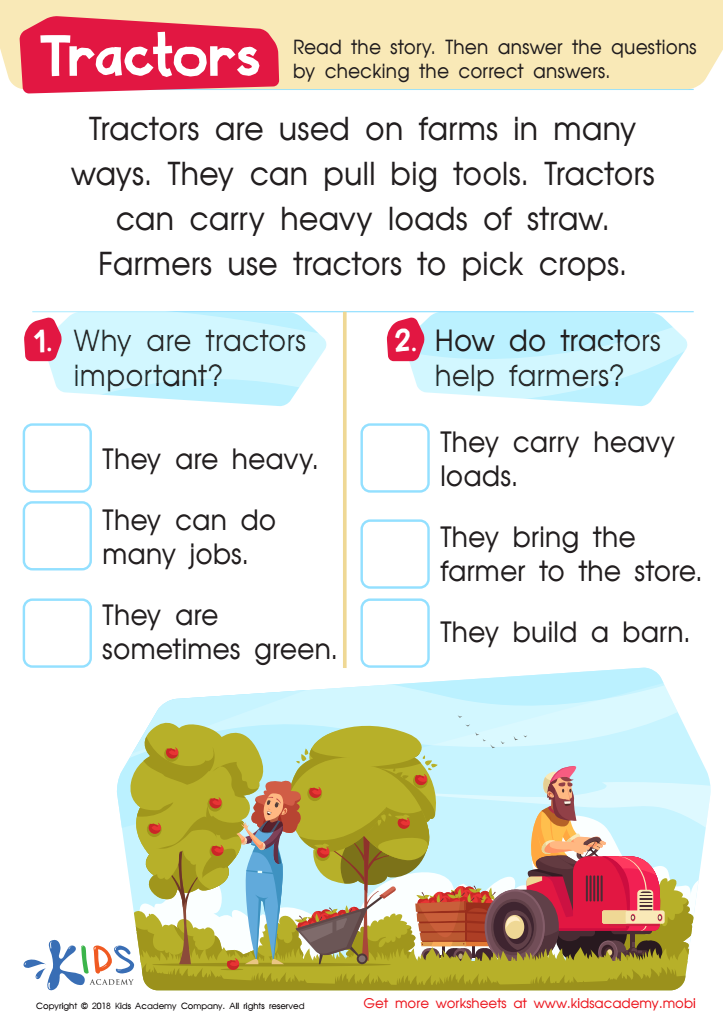Color recognition Reading Non-Fiction Worksheets for Ages 3-8
3 filtered results
-
From - To
Introduce your child to the vibrant world of colors while boosting their non-fiction reading skills with our Color Recognition Reading Non-Fiction Worksheets for Ages 3-8. At Kids Academy, we’ve crafted engaging and educational materials that help young learners identify and differentiate colors. These fun worksheets not only develop essential reading comprehension but also enhance visual discrimination and cognitive abilities. Perfect for early readers, our activities include real-life pictures and simple texts to make color recognition interactive and enjoyable. Spark your child's imagination and support their learning journey with our expertly designed non-fiction worksheets. Visit Kids Academy today and start the colorful adventure!


Pre–reading Worksheet: What Do You See?


Baby Pandas Worksheet


Tractors Worksheet
Color recognition and reading non-fiction are fundamental skills that parents and teachers should prioritize for children aged 3-8. At this early age, children are exceptionally receptive to learning through sight, touch, and interaction. Color recognition is an important cognitive skill that aids in classification, memory, and the ability to follow instructions. Being able to differentiate colors enhances children's visual perception, creativity, and even forms the basis for recognizing letters and numbers. Activities that promote color recognition, such as matching and sorting, can therefore lay the groundwork for future academic success.
Reading non-fiction to young children enriches their knowledge of the world. These readings provide real-world context and help in building critical understanding from a very young age. Non-fiction stories introduce factual vocabulary and concepts, such as habitats for animals, planetary information, and factual historical stories, which can spark curiosity and open avenues for inquiry-based learning.
Engaging in these educational activities at an early stage helps in developing comprehensive linguistic skills, expanding vocabulary, and nurturing a love for lifelong learning. By combining color recognition with non-fiction reading, parents and teachers can foster an environment that's both intellectually stimulating and supportive, ultimately preparing children for more complex learning experiences in their future academic journey.
 Assign to My Students
Assign to My Students
















